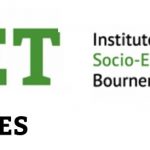 Thursday 22 April at 4pm
Thursday 22 April at 4pm
Modelling land use in the ancient Near East: methodological problems and interpretive potential with Dr. Dan Lawrence, Durham University
Land use and land cover (LULC) changes have important biophysical and biogeochemical effects on climate via a variety of mechanisms. The PAGES working group LandCover6k aims to produce global reconstructions of land use and land cover based on archaeological data to provide climate modellers with datasets for sensitivity testing. The Ancient Near East has a long history of agricultural and pastoral exploitation, and as such represents a key area for the understanding of human induced landcover change. This paper will discuss the methods through which land use has been reconstructed by the Middle East group of the Landcover6K project. It will also show how these methods can also be used by archaeologists to investigate socio-ecological systems through time, building on datasets collected through the ERC funded Climate, Landscape, Settlement and Society (CLaSS) Project. This project aims to collect all archaeological settlement, zooarchaeological and archaeobotanical data available for the Fertile Crescent over the Holocene. Combining land use modelling with archaeologically derived evidence for past population and subsistence practices has significant interpretive potential. We illustrate this by presenting new results on the impact of the 4.2kya event, a period of drought associated by some with the collapse of the Akkadian empire and widespread population decline. We will also discuss preliminary work on long term trends in social complexity, productivity and resilience.
Find out more and book your place.
 IMSET Seminar: Exploring the chaîne opératoire of applied long-term human ecodynamics
IMSET Seminar: Exploring the chaîne opératoire of applied long-term human ecodynamics IMSET Seminar: Understanding coastal change
IMSET Seminar: Understanding coastal change










 New Nepal scoping review on maternal & neonatal health
New Nepal scoping review on maternal & neonatal health Fourth INRC Symposium: From Clinical Applications to Neuro-Inspired Computation
Fourth INRC Symposium: From Clinical Applications to Neuro-Inspired Computation Writing policy briefs
Writing policy briefs Upholding Excellence: The Concordat to Support Research Integrity
Upholding Excellence: The Concordat to Support Research Integrity ECR Funding Open Call: Research Culture & Community Grant – Application Deadline Friday 12 December
ECR Funding Open Call: Research Culture & Community Grant – Application Deadline Friday 12 December MSCA Postdoctoral Fellowships 2025 Call
MSCA Postdoctoral Fellowships 2025 Call ERC Advanced Grant 2025 Webinar
ERC Advanced Grant 2025 Webinar Horizon Europe Work Programme 2025 Published
Horizon Europe Work Programme 2025 Published Horizon Europe 2025 Work Programme pre-Published
Horizon Europe 2025 Work Programme pre-Published Update on UKRO services
Update on UKRO services European research project exploring use of ‘virtual twins’ to better manage metabolic associated fatty liver disease
European research project exploring use of ‘virtual twins’ to better manage metabolic associated fatty liver disease